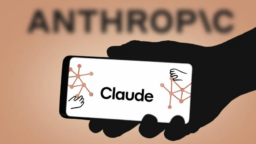Canadian singer, songwriter and record producer Grimes has launched a new AI project in beta, inviting users to create songs using her voice in exchange for a 50% share of the master recording royalties.
The artist (Claire Elise Boucher), announced the launch of the platform, called Elf.tech via Twitter recently.
Grimes’ AI project requires creators to have “the legal right to all elements of their distributed recording,” except for the ‘GrimesAI-1 voiceprint.’
Grimes has partnered with Los Angeles-based design and development studio CreateSafe to launch the project.
Founded in January 2018, CreateSafe’s previous products include the ‘Record Deal Simulator’ and Droplink, and has worked with artists including Grimes, DJ Snake, Lady Gaga, Lil Nas X, Take a Daytrip, and Dom McLennon.
Elf.tech is a prototype white label of CreateSafe’s Triniti platform, described as an AI-driven platform that the company claims “revolutionizes the way music is managed, distributed and marketed”.
Through Elf.tech, fans and creators can upload pre-recorded acapellas or record their own set of vocals to be transformed into a ‘GrimesAI-1 voiceprint.’
The transformed voiceprint comes out as a WAV file that users can incorporate into new sound recordings. These recordings will be owned by the creators themselves.
“GrimesAI-1 does not claim any ownership of the sound recording or the underlying composition (unless that composition is a cover of a Grimes song),” according to the Elf.tech platform.
Grimes added on Twitter: “I don’t own the rights to the vocals from my old albums. If you make remixes, they may get taken down. However if you don’t monetize them they prob won’t get taken down. If a remix goes viral we will work with my old labels to ensure distribution/compensation for you.”
If creators choose to distribute the songs through Grimes’ team using the GrimesAI-1 voiceprint, they will be asked to share an equal percentage of the master recording royalties distributed on streaming services, onchain marketplaces and other DSPs.
“We ask for 50% splits on master recording royalties in exchange for a grimes feat and distribution. There’s a *small* chance we can organize getting you publishing $ as well but we can’t guarantee this yet. But I hope we can!! Would be cool,” Grimes said.
For creators who choose to upload their tracks on digital streaming platforms, oyalties will be collected from all DSPs and paid out by Elf.tech, while for on-chain sales and royalties, creators will have to add GrimesAI.eth wallet to the collection when minting.
When using the GrimesAI-1 voiceprint in creating tracks, users should add GrimesAI as a main artist, secondary or featured artist.
Grimes also says creators can use her name and likeness, adding that Grimes “is now open source and self replicating.”
Grimes is known for her experimental approach to music and art. In 2020, Grimes unveiled WarNymph, a digital avatar, as she seeks “to develop a new species that would be ready for the next evolution in media,” Grimes told The Face magazine in 2020.
Grimes is among a few artists who are bullish on AI’s potential in music creation.
Former Genesis member Peter Gabriel recently launched a competition that he is running with open-source AI company Stability AI. The competition invites participants to submit animated AI-generated videos inspired and set to his music.
In defense to criticism that the competition is promoting an unethical business model, Gabriel said, “it was designed to be a playful, creative activity and not as a money-making exercise.”
Grimes and Gabriel’s AI projects come amid a tech industry-wide call for a six-month pause on “the training of AI systems more powerful than GPT-4.”
Over 1,000 industry players including Elon Musk, CEO of SpaceX, Twitter, and Tesla, and Grimes’ co-parent; Apple co-founder Steve Wozniak; Stability AI CEO Emad Mostaque; Evan Sharp, co-founder of Pinterest; and Chris Larsen, co-founder of Ripple, have backed that call.
The news also comes two weeks after a track featuring AI-generated vocals copying the vocals of artists Drake and The Weeknd racked up hundreds of thousands of streams on Spotify and YouTube before it was taken down.
Music Business Worldwide





